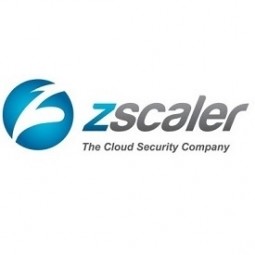Download PDF
Watercare Enhances Security and User Experience with Zscaler Zero Trust Exchange Platform
Technology Category
- Cybersecurity & Privacy - Network Security
- Platform as a Service (PaaS) - Application Development Platforms
Applicable Industries
- Equipment & Machinery
- Telecommunications
Applicable Functions
- Maintenance
Use Cases
- Leakage & Flood Monitoring
- Water Utility Management
Services
- Cloud Planning, Design & Implementation Services
The Challenge
Watercare Services, a public utility company in Auckland, New Zealand, faced significant challenges in securing its network and optimizing work-from-anywhere (WFA) and remote access for its IIoT and IoT devices. The company had initially weathered the first wave of COVID-19 lockdowns using a combination of security solutions, including a secure cloud gateway and virtual private networks (VPNs). However, during the second lockdown, these solutions proved insufficient. The company's existing secure cloud gateway was obtrusive and unpopular among users. Furthermore, Watercare's primary VPN product collapsed just before the second lockdown, leaving the company in urgent need of a more reliable and comprehensive solution. The company was committed to adopting a zero trust security approach and needed a platform that could deliver exceptional user experiences while also providing robust security.
About The Customer
Watercare Services is a public utility company based in Auckland, New Zealand. The company converts approximately 400 million litres of collected fresh water into drinking water for 1.7 million residents of the greater Auckland region every day. It also treats a similar quantity of wastewater and returns it safely to coastal waterways. In addition to these services, Watercare operates a substantial construction division to complete and maintain its various facilities. The company has approximately 1,100 employees serving 1.7 million residents and operates across 1,300 sites. Watercare is committed to using technology effectively to improve productivity and user experiences.
The Solution
Watercare decided to standardize on the Zscaler Zero Trust Exchange platform, which included the granular user experience monitoring and analytics solution, Zscaler Digital Experience (ZDX). The company expanded its Zscaler Private Access (ZPA) deployment by 800 people in less than half a day, securing access to Watercare applications running in its data center and in its multicloud environment. The ZPA connects users and devices to applications, rather than to the network, preventing lateral infections while making users and applications invisible to external threats. The platform also inspects traffic, including encrypted traffic, for effective prevention of threats and data loss. Watercare also adopted Zscaler Internet Access (ZIA) to speed up internet connections and boost security. Finally, the company implemented ZDX to improve user experiences and resolve application performance issues more efficiently.
Operational Impact
Quantitative Benefit
Related Case Studies.

Case Study
Smart Water Filtration Systems
Before working with Ayla Networks, Ozner was already using cloud connectivity to identify and solve water-filtration system malfunctions as well as to monitor filter cartridges for replacements.But, in June 2015, Ozner executives talked with Ayla about how the company might further improve its water systems with IoT technology. They liked what they heard from Ayla, but the executives needed to be sure that Ayla’s Agile IoT Platform provided the security and reliability Ozner required.

Case Study
IoT enabled Fleet Management with MindSphere
In view of growing competition, Gämmerler had a strong need to remain competitive via process optimization, reliability and gentle handling of printed products, even at highest press speeds. In addition, a digitalization initiative also included developing a key differentiation via data-driven services offers.

Case Study
Predictive Maintenance for Industrial Chillers
For global leaders in the industrial chiller manufacturing, reliability of the entire production process is of the utmost importance. Chillers are refrigeration systems that produce ice water to provide cooling for a process or industrial application. One of those leaders sought a way to respond to asset performance issues, even before they occur. The intelligence to guarantee maximum reliability of cooling devices is embedded (pre-alarming). A pre-alarming phase means that the cooling device still works, but symptoms may appear, telling manufacturers that a failure is likely to occur in the near future. Chillers who are not internet connected at that moment, provide little insight in this pre-alarming phase.

Case Study
Premium Appliance Producer Innovates with Internet of Everything
Sub-Zero faced the largest product launch in the company’s history:It wanted to launch 60 new products as scheduled while simultaneously opening a new “greenfield” production facility, yet still adhering to stringent quality requirements and manage issues from new supply-chain partners. A the same time, it wanted to increase staff productivity time and collaboration while reducing travel and costs.

Case Study
Integration of PLC with IoT for Bosch Rexroth
The application arises from the need to monitor and anticipate the problems of one or more machines managed by a PLC. These problems, often resulting from the accumulation over time of small discrepancies, require, when they occur, ex post technical operations maintenance.

Case Study
Robot Saves Money and Time for US Custom Molding Company
Injection Technology (Itech) is a custom molder for a variety of clients that require precision plastic parts for such products as electric meter covers, dental appliance cases and spools. With 95 employees operating 23 molding machines in a 30,000 square foot plant, Itech wanted to reduce man hours and increase efficiency.





